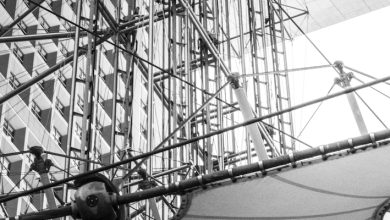How DAOs Are Changing the Future of Governance

- Understanding the basics of DAOs
- The rise of decentralized autonomous organizations
- Challenges and opportunities in DAO governance
- Exploring the potential impact of DAOs on traditional governance structures
- Key features of successful DAOs
- The role of smart contracts in DAO governance
Understanding the basics of DAOs
Decentralized Autonomous Organizations, or DAOs, are changing the landscape of governance as we know it. DAOs are essentially organizations that run on code rather than human intervention. This means that decisions within a DAO are made based on predefined rules and smart contracts, removing the need for traditional hierarchies and intermediaries.
By leveraging blockchain technology, DAOs are able to operate in a transparent and trustless manner. This allows for greater accountability and efficiency in decision-making processes. Additionally, DAOs enable a more inclusive and democratic form of governance, as anyone with internet access can participate in the decision-making process.
One of the key components of a DAO is its tokenomics, which refers to the economic model of the organization. Tokens are used to represent voting rights and ownership within the DAO. Token holders can vote on proposals and influence the direction of the organization based on the number of tokens they hold.
DAOs have the potential to disrupt traditional governance structures by providing a more efficient, transparent, and inclusive alternative. As the technology continues to evolve, we can expect to see DAOs play a significant role in shaping the future of governance across various industries.
The rise of decentralized autonomous organizations
Decentralized Autonomous Organizations (DAOs) are revolutionizing the way governance is conducted in various sectors. These organizations operate using smart contracts on a blockchain, allowing for transparent and autonomous decision-making processes. DAOs are gaining popularity due to their ability to eliminate the need for intermediaries and central authorities, making them more efficient and cost-effective.
One of the key advantages of DAOs is their ability to promote decentralized decision-making. This means that stakeholders have a say in the governance of the organization, regardless of their location or status. By using blockchain technology, DAOs ensure transparency and accountability in decision-making processes, reducing the risk of corruption and fraud.
Furthermore, DAOs enable a more inclusive approach to governance, allowing individuals to participate in decision-making processes that affect them directly. This level of inclusivity can lead to better outcomes for the organization as a whole, as decisions are made based on a wider range of perspectives and expertise.
As DAOs continue to gain traction, they have the potential to disrupt traditional governance structures in industries such as finance, healthcare, and supply chain management. By leveraging blockchain technology, DAOs offer a secure and efficient way to conduct governance, paving the way for a more decentralized and transparent future.
Challenges and opportunities in DAO governance
One of the key challenges in decentralized autonomous organization (DAO) governance is ensuring effective decision-making processes. With multiple stakeholders involved in DAOs, reaching a consensus can be a daunting task. This can lead to delays in decision-making and hinder the overall efficiency of the organization. However, these challenges also present opportunities for DAOs to experiment with innovative governance models that can potentially revolutionize traditional structures.
One approach to addressing governance challenges in DAOs is through the use of smart contracts. By automating certain decision-making processes, DAOs can streamline governance and reduce the potential for human error or bias. Additionally, smart contracts can help enforce rules and protocols agreed upon by DAO members, ensuring transparency and accountability in decision-making.
Another opportunity in DAO governance lies in the concept of liquid democracy. This model allows DAO members to delegate their voting power to trusted individuals or experts on specific issues. By leveraging the expertise of individuals within the organization, DAOs can make more informed decisions and overcome the challenges of reaching a consensus among a large and diverse group of stakeholders.
Furthermore, DAOs can explore the use of prediction markets to gauge the sentiment of their members on specific proposals or decisions. By allowing members to stake tokens on the outcome of a decision, DAOs can incentivize active participation and generate valuable insights into the preferences and beliefs of their community.
In conclusion, while challenges exist in DAO governance, they also present unique opportunities for organizations to experiment with new models and technologies. By leveraging smart contracts, liquid democracy, and prediction markets, DAOs can enhance their decision-making processes and drive innovation in governance.
Exploring the potential impact of DAOs on traditional governance structures
Exploring the potential impact of DAOs on traditional governance structures is crucial in understanding how these decentralized entities are reshaping the future of decision-making. DAOs, or Decentralized Autonomous Organizations, are revolutionizing the way communities govern themselves by utilizing blockchain technology to enable transparent, efficient, and decentralized decision-making processes.
One significant aspect of DAOs is their ability to eliminate the need for centralized intermediaries, such as governments or corporations, in decision-making processes. This shift towards decentralization has the potential to increase transparency, reduce corruption, and empower individuals to have a direct impact on the decisions that affect them.
Furthermore, DAOs operate on smart contracts, which are self-executing contracts with the terms of the agreement directly written into code. This feature ensures that the rules governing the organization are transparent, immutable, and automatically enforced, reducing the risk of manipulation or fraud.
As DAOs continue to gain momentum, traditional governance structures may need to adapt to accommodate these new decentralized models. While DAOs offer numerous benefits, such as increased efficiency and transparency, they also present challenges, such as regulatory uncertainty and accountability issues.
Overall, the potential impact of DAOs on traditional governance structures is immense, and understanding how these entities function is essential for shaping the future of decision-making processes. By embracing the principles of decentralization and transparency, traditional governance structures can learn from DAOs and evolve to meet the changing needs of society.
Key features of successful DAOs
Successful DAOs share several key features that contribute to their effective governance and decision-making processes.
- Transparency: One of the most important aspects of a successful DAO is transparency. Members should have access to all relevant information, including proposals, voting results, and financial records.
- Decentralization: Decentralization ensures that power is distributed among all members of the DAO, rather than concentrated in the hands of a few. This helps to prevent corruption and ensures that decisions are made in the best interest of the community.
- Community Engagement: Successful DAOs actively engage with their community, seeking feedback and input on important decisions. This helps to build trust and loyalty among members, leading to a more vibrant and active community.
- Effective Governance: A successful DAO has a clear governance structure in place, outlining how decisions are made, how funds are allocated, and how disputes are resolved. This helps to ensure that the DAO operates smoothly and efficiently.
- Smart Contracts: Many successful DAOs use smart contracts to automate certain processes, such as voting and fund distribution. This helps to reduce the risk of human error and ensures that decisions are executed according to the rules set out in the DAO’s code.
By incorporating these key features into their operations, DAOs can create a more democratic, transparent, and efficient form of governance that has the potential to revolutionize the way organizations are run in the future.
The role of smart contracts in DAO governance
Smart contracts play a crucial role in the governance of Decentralized Autonomous Organizations (DAOs). These self-executing contracts are written in code and automatically enforce the terms of an agreement when certain conditions are met. In the context of DAO governance, smart contracts can be used to automate decision-making processes, allocate funds, and facilitate voting mechanisms.
One of the key benefits of using smart contracts in DAO governance is the transparency and immutability they provide. Since smart contracts are stored on a blockchain, all transactions and decisions are recorded on a public ledger, making it easy for stakeholders to track and verify the actions of the organization. Additionally, smart contracts are tamper-proof, meaning that once deployed, they cannot be altered or manipulated by any single party.
Furthermore, smart contracts can help streamline the decision-making process within a DAO by automating certain tasks and removing the need for intermediaries. For example, instead of relying on a central authority to approve fund transfers or validate votes, smart contracts can be programmed to execute these actions based on predefined rules and conditions. This not only increases the efficiency of governance processes but also reduces the risk of human error or bias.
In conclusion, smart contracts are an essential tool for ensuring the transparency, security, and efficiency of DAO governance. By automating key processes and removing the need for intermediaries, smart contracts help DAOs operate in a more decentralized and democratic manner. As the adoption of blockchain technology continues to grow, smart contracts will play an increasingly important role in shaping the future of governance.



